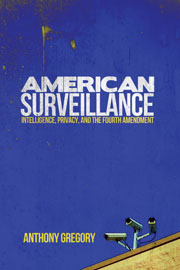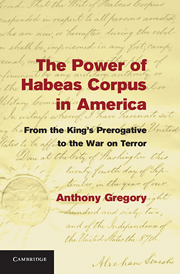About two weeks ago, the FBI admitted in federal court to collecting thousands of documents on non-violent activist groups, including the ACLU, Greenpeace and various antiwar organizations.
The ACLU, suing under the Freedom of Information Act, requested to see its files, but the FBI insists it cannot turn over its 1,173 pages of documentation on the ACLU for another eight or more months, as it needs that time to “process” them. Ironically, this same agency, which can apparently only “process” about five documents a day, is also supposed to protect Americans against terrorism.
This is, of course, the same agency that refused to authorize a criminal investigation of two of the 9/11 hijackers weeks before the attacks on the World Trade Center, and which, around the same time, denied a search warrant to Minneapolis agents who sought to search the computer and other possessions of “twentieth hijacker” Zacarias Moussaoui, who had caught their attention when he showed up to flight school, thousands of dollars in hand, apparently incompetent at flying but eager to learn how to fly a 747 (but not how to land it) along with details about its doors and control panel, and vocally interested in the likely amount of damage it would cause upon crashing. Having misunderstood its own rules and protocol regarding the issuing of FISA search warrants, the FBI headquarters withheld permission to search Moussaoui’s property, even after a flight school official pointed out to the FBI “that a 747 loaded with fuel can be used as a bomb,” and after one of the head Minneapolis agents prophetically expressed concern to the main FBI office that Moussaoiu might “take control of a plane and fly it into the World Trade Center.”
After 9/11, the FBI was awarded new surveillance powers and larger budgets—even though inter-bureaucracy squabbling and the FBI’s misunderstanding of its own guidelines, not a lack of resources, accounted for its failures leading up to 9/11. Now this same agency professes to protect us by amassing thousands of documents on non-violent political organizations. Does the FBI suspect that the ACLU is planning a terrorist attack? If not, why is the FBI wasting time and resources monitoring such groups when it admits it cannot process the information it already has?
Ironically, the ACLU, often seen as excessively pro-civil liberties, has been relatively mild in its criticisms of the war on terror since 9/11. It failed to oppose the USA PATRIOT Act when it was being adopted shortly after 9/11 and has yet to call for total repeal, instead advocating some accommodation of “balancing liberty and security.”
Concerned Americans might be excused for doubting that such “intelligence” gathering has more to do with making us safer than simply spying on critics of the government’s policies.
The FBI has long served to disrupt and intimidate dissidents. In the immediate aftermath of World War I, the agency’s direct predecessor, the “General Intelligence Division,” compiled hundreds of thousands of names of radical Americans, arrested thousands of suspected Communists, and deported more than two hundred anarchists and others to Bolshevik Russia. Reborn as the “Bureau of Investigation” in the late 1920s, it continued to spy upon such “socialists” as Albert Einstein. During his 12-year reign in Washington, President Franklin Roosevelt used the FBI against his own political opponents on the left and right, including Republican presidential candidate Wendell Willkie.
In 1956 the FBI launched COINTELPRO (Counter Intelligence Program) to “track, expose, disrupt, misdirect, discredit, or otherwise neutralize the activities” of targeted political radicals, as one internal document put it. One COINTELPRO operation in San Diego involved sending forged letters to the Black Panthers and rival organization United Slaves, inciting them to violence. The FBI reveled in the “shootings, beatings, and a high degree of unrest,” and boasted in a memo, “Although no specific counterintelligence action can be credited with contributing to this overall situation, it is felt that a substantial amount of the unrest is directly attributable to this program,” as was disclosed in an official U.S. Senate report on intelligence activities in April, 1976.
Throughout the 1950s, 1960s and 1970s, the FBI snooped on the personal lives of radical leftists, peace activists, and Civil Rights personalities such as Martin Luther King, infiltrated activist groups opposed to mandatory busing, and even spied on John Lennon.
In October 2003, the FBI carried out extensive surveillance of Iraq war protestors, their activism, and their “training grounds,” as an agent put it in a formal memo, which asked local law enforcement “to be alert to these possible indicators of protest activity and report any potentially illegal acts.” The New York Times quoted one FBI official saying “it’s obvious that there are individuals capable of violence at these events. We know that there are anarchists... trying to sabotage and commit acts of violence....” But isn’t this concern about “anarchists” misplaced? The real issue should be protecting persons and property, a matter, domestically, entrusted to and better suited for local law enforcement.
The FBI has historically spied on people with political views outside the establishment’s approved norms. On the other hand, the FBI failed miserably in the months leading up to 9/11, despite repeated and clear warning signs pointing to some of the hijackers. Meanwhile, it continues to squander resources enforcing laws against gambling, drugs, prostitution, and other activities for which there is no logical or Constitutional reason for federal involvement. Given all this, the FBI’s tracking of peaceful political groups seems not only unwarranted, but downright ominous for liberty.
One can only hope that the ACLU will now finally join those of us who have always opposed the entire slate of new federal police powers enacted since 9/11, which have inflicted great damage on the Bill of Rights and American liberties and been unnecessary, ineffective, and counterproductive in combating terrorism.








